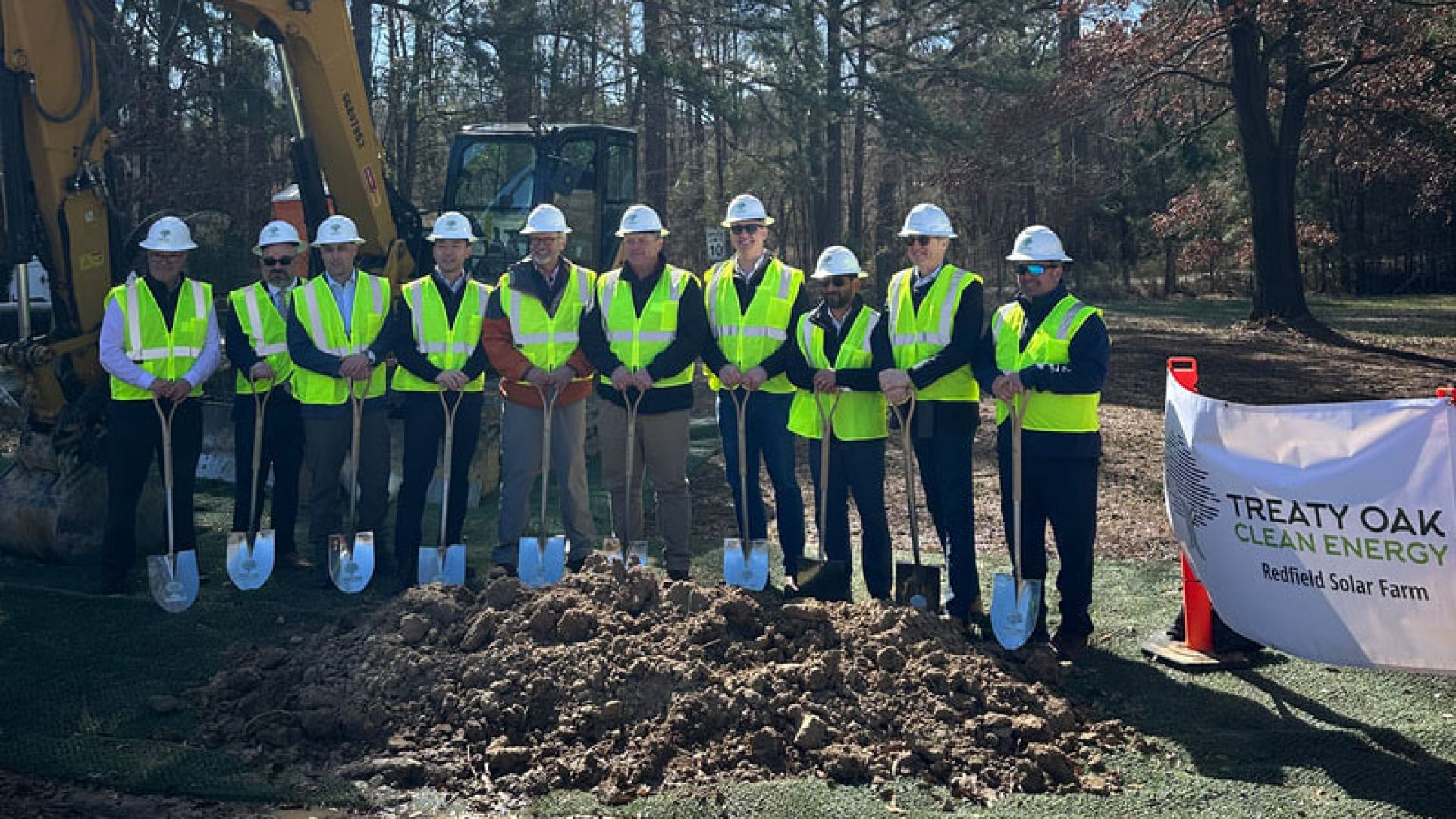Sheridan, Ark. – The Southern Renewable Energy Association (SREA) proudly joined Treaty Oak Clean Energy and local leaders to celebrate the groundbreaking of Redfield Solar, a 100-megawatt (MW) project that will bring jobs, tax revenue, and long-term economic growth to Grant County. This milestone highlights the expanding role of solar energy in strengthening local communities and advancing Arkansas’ renewable energy landscape.
Powering Economic Growth and Clean Energy
Spanning 1,000 acres, Redfield Solar is set to bring long-lasting economic benefits to Grant County. Construction, expected to begin in early 2026, will create 200 jobs, while two to three long-term positions will support operations. Over its lifespan, the project will contribute $10 million in tax revenue, strengthening local schools, infrastructure, and essential services.
"This project is much more than a solar facility," said Chris Elrod, co-founder and CEO of Treaty Oak Clean Energy. "It’s a significant investment in the people, businesses, and future of Grant County. From the beginning, our goal has been to be a good neighbor—working closely with county leaders, local businesses, and residents to ensure this project benefits the entire community."
At SREA, we recognize the vital role projects like Redfield Solar play in advancing clean energy across the region. These developments create jobs, strengthen supply chains, and provide stable tax revenue—ensuring long-term benefits for communities across the South.
Commitment to Local Materials and Jobs
A key highlight of the Redfield Solar Project is its commitment to using Arkansas-manufactured materials, reinforcing local supply chains and maximizing statewide economic impact. The steel for the advanced Nextracker NX Horizon-XTR terrain-following solar tracker systems will come from U.S. Steel’s Big River Steel Mill in Osceola. Additionally, essential components such as connectors and harnesses will be supplied by Premier PV in Crossett.
“By sourcing materials from right here in Arkansas, we are supporting the local industries and workforce that make projects like this possible,” Elrod stated. “This investment demonstrates our commitment to the state’s economy and the long-term benefits that clean energy development can bring to communities.”
Investing in the Community
As part of its broader economic and community impact, Treaty Oak Clean Energy is directly investing in local development. To support this commitment, the company donated $100,000 to the Grant County Library during the groundbreaking event to help fund its recent renovation and expansion.
Grant County Judge Randy Pruitt emphasized the project’s significance, stating, “We’re glad to welcome Treaty Oak Clean Energy to Grant County for this important project. Their investment will bring in steady tax revenue that will go toward fixing roads, strengthening our schools, and keeping essential services running for our community.”
At SREA, we believe that renewable energy projects bring lasting benefits to the communities they serve. By generating tax revenue, supporting local economies, and investing in infrastructure, these projects create a foundation for long-term growth and stability.
Looking Ahead
The Redfield Solar Project marks a significant step in expanding Arkansas’ renewable energy portfolio. At a time when reliable, cost-effective electricity is more important than ever, projects like this help diversify the state’s energy mix while creating jobs and strengthening local economies.
With construction set to begin in early 2026, Redfield Solar will become a key part of Grant County’s sustainable energy future. It stands as a testament to the power of local partnerships and community-driven clean energy initiatives.
As a trade association committed to growing renewable energy in the South, SREA is excited to support the growth of projects like Redfield Solar. As we continue advocating for clean energy across the South, we remain committed to strengthening the economy, empowering communities, and building a more sustainable future.





